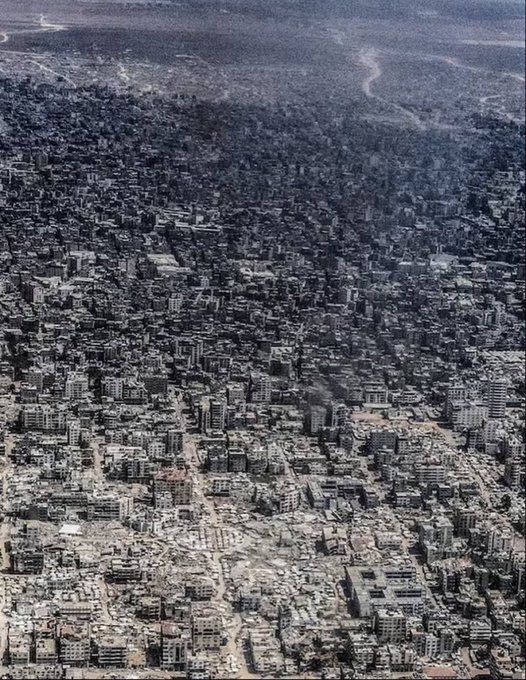———————————————–
Islamic Human Rights Commission
———————————————–
21 March 2005
The Plight of Chechen Refugees revisited
In June 2003, IHRC addressed the plight of Chechen refugees in the Caucus state of Georgia, noting their distressing conditions (see IHRC briefing, ‘The Plight of Chechen Refugees in Georgia’). Back then IHRC voiced its deep concern at the Georgian government’s failure to fulfil its obligations under various international accords, including the Geneva Refugee Convention, to provision for Chechen refugees. More so, the active harassment and discrimination Chechen refugees encountered from governmental apparatus.
Two years on, Russia’s war on the tiny republic of Chechnya* shows no sign of abating. The number of Chechen refugees fleeing their war torn homeland continues to rise, as does their geographical dispersement. In this briefing, IHRC highlights the harrowing conditions and abuses Chechen refugees experience in the wider Caucuses and Europe on account of their refugee status, their Chechen ethnicity and Muslim faith. The briefing returns not only to assess whether the plight of Chechen refugees has been addressed in Georgia, but examines the conditions of Chechen refuges in neighbouring Azerbaijan, Moldova and Poland from the latter half of 2004 to date.
Georgia reassessed
A re-assessment of the treatment of Chechen refugees in March 2005 shows no incremental improvement upon their conditions and status as reported by IHRC in June 2003. Back then IHRC cited its concern at the military operations conducted by the Georgian government against Chechen refugees in the Pankisi Gorge region, where the bulk of Georgia’s Chechen refugees reside. IHRC noted that these operations, under the guise of “anti-terrorism” pronouncements, resulted in disappearances of Chechen refugees, alongside Russian incursions into the Pankisi Gorge. In 2005, IHRC is disheartened to report that these unwarranted military operations still continue and Putin’s Russia still continues in its threats to bomb the Chechen refugee population in the Pankisi Gorge.
However, there is evidence that the Chechen refugee population is becoming proactive in its desire to ameliorate their conditions. On 30 January 2005, Chechen refugees held a protest rally in front of the United Nations Refugee Mission (UNRM) in the Georgian capital, Tbilisi. The protest was in response to the UNRM’s continued procrastination in its decision to provide Chechen refugees in Georgia with any substantial refugee recognition or material help to ameliorate their dire living conditions. The UNRM in Georgia has been defined by its muted silence in the face of Chechen refugee pleas over the violation of their rights by Georgian authorities. Further, it has been alleged that members of the UNRM in Georgia have participated in the embezzlement of what little humanitarian aid has been directed towards the Chechen refugee population.
Neighbourly Azerbaijan?
But, what as to Chechen refugees in neighbouring Azerbaijan? Many people familiar with the Caucuses would expect Chechen refugees to have received a warm welcome in Azerbaijan on account of the historical familiarity between Chechnya and Azerbaijan. But, the political reality that currently presides in Azerbaijan, as imposed by the Aliyev ‘clan’ (see IHRC February 2003 briefing, ‘Azerbaijan and the Hijab Ban: A new Kemalist nightmare?’), reveals anything but a warm welcome for Chechen refugees.
In December 2004, Chechen refugees held protests against Azerbaijani government violence towards Chechen refugees and illegal, forced deportations of Chechen refugees to Russian-occupied Chechnya. This followed unannounced mass arrests of Chechen refuges in October 2004. Further, aid workers have reported that Chechen men are often the target of arrest and extortion by Azerbaijani police.
On 23 February 2005, Chechen refugees in the Azerbaijani capital, Baku, launched a hunger strike in protest against the refusal by the UN High Commissioner for Refugees (UNHCR) to grant them international refugee status and thus the entitlement to financial assistance and other forms of refugee support. The strikes coincided with the anniversary of the deportation by Soviet dictator Joseph Stalin of the entire Chechen population to Central Asia in the 1940s. The UNHCR has admitted that its own assistance to Chechen refugees has been woefully inadequate and that malnutrition amongst Chechen refugees in Azerbaijan is rapidly on the increase. Additionally, the Azerbaijani government has withheld humanitarian assistance to Chechen refugees by denying them official refugee status.
Chechen refugees in Europe
Increasingly, Chechen refugees have made their way to Europe in the hope for better humanitarian conditions. Two ‘European’ countries IHRC examines, Moldova and Poland, reveal the conditions of Chechen refugees to be no better than of those Chechen refugees in Georgia and Azerbaijan.
Moldova, the Balkan enigma
Moldova has been a past concern for IHRC. In July 2003, IHRC issued a briefing, ‘Moldova’s Unofficial Muslims’, highlighting the growth in both governmental and far-right hostility and prejudice against the Muslim populous in Moldova. It seems that Chechen refugees are being subsumed under this general anti-Muslim hostility at which worries IHRC greatly. There is an increasingly hostile attitude in Moldovan society towards Chechen refugees. It is apparent that the Russian-language media in Moldova, on account of their pro-Moscow, pro-Putin tendencies, have played a leading role in ‘whipping up’ hostility against Chechen refugees in Moldova.
To date, the Moldovan government has only granted refugee status to just 2% of Chechen refugees currently living in Moldova. Further, despite Moldovan law recognising the right of refugees to seek gainful employment, the Moldovan government actively hinders attempts by Chechen refugees to access employment by the denial of residence permits to Chechen refugees. Such residence permits are a fundamental prerequisite to obtaining paid employment.
In December 2004, Chechen refugees made an impassioned plea to the United Nations Supreme Commissioner in Moldova, Lars Yonsson, in an attempt to draw attention to their appalling conditions in this troubled Balkan country. By February 2005, Chechen refugees declared their second hunger strike in protest against their treatment by the Moldovan government and to highlight their enforced poor living conditions.
Poland: European Union haven?
Poland is one the European Union’s (EU) largest and recent members. Naturally, advocates for refugee rights would expect an EU member state to adopt a more humane policy and approach to its refugee population. But, facts on the ground suggest the opposite. Chechen refugee families languish in isolated Polish asylum camps under decrepit conditions. These camps are deliberately isolated from main Polish population centres. Three to four families are accommodated in one room. Often, there is one lavatory, one shower and one kitchen on each floor for all the families living on the same floor. In protest at their poor living conditions, 200 Chechen refugees at the Dembak asylum-centre reportedly held a hunger strike in December 2004. However, Chechen refugees report no change or improvement in their living conditions.
Health conditions amongst Chechen refugees in Polish camps are poor. Chechen refugees report that no doctors visit the camps to examine Chechen refugees. Many Chechen refugees have injuries sustained during the Russian war campaign against the Chechen populous and report that even bandages are often not available at Polish asylum camps. Disease is rampant amongst Chechen refugees, especially amongst children. Dyspepsia is extremely prevalent owing to the poor food served by the Polish authorities in the camps. Chechen refugees often refer to the food as ‘rotten’.
Chechen refugees are barred from accessing social welfare provisions. Further, despite their entitlement to a small monthly stipend, over half of Chechen refugees do not receive such a stipendiary. Not only this, but the Polish government has seemingly seen it fit to prevent Chechen refuges from realising their full rights as refugee persons. For example, Polish authorities have issued Chechen refuges with temporary permits to live in Poland as opposed to asylum status. It is also reported that nearly all the children of Chechen refugees are without any form of schooling. As a result, many Chechen refugee children are illiterate.
In December 2003 the Czech government reported that a large number of Chechen refugees crossed from Poland to the Czech Republic claiming harsh conditions in Polish refugee camps. However, Chechen refugees who make attempts to flee Poland to neighbouring countries are deported back to very same Polish camps, whose awful conditions they sought to escape from.
IHRC’s continued concerns for Chechen Refugees
The lack of international condemnation of Russian war crimes in Chechnya perhaps serves as a symposium for the equal lack of international concern for the plight of Chechen refugees dispersed not just throughout the Caucuses, but also across Europe and Central Asia. In light of this perhaps contrived international impotency, IHRC calls upon the Georgian, Azerbaijani, Moldovan and Polish governments to consider their attitudes towards Chechen refugees. At stake, more than anything is their individual and collective international images.
IHRC calls upon Georgian President Saakashvili to rescind the policy of his predecessor, Eduard Shevardnadze, towards Chechen refugees and seeks an immediate halt of all military operations in the Pansiki Gorge. These were the same requests issued by IHRC in June 2003.
IHRC notes that Ilham Aliyev, who has taken over the reigns of government from his autocratic father, Heydar Aliyev, seeks to generate international goodwill towards Azerbaijan and his ascendancy. IHRC would advise Ilham Aliyev that if this is to be achieved, then a progressive step would be to halt its ’embargo’ of its Chechen refugee population and deportation of its members to Russia.
With regards to Moldova, IHRC issues a pessimistic note in light of the re-election of the incumbent Communist Party government, which is more than likely to remain steadfast in its current position towards its Chechen refugees. However, IHRC notes that the Communist Party leader, President Vladimir Voronin, had pledged to continue Moldova\\\’s push towards European integration. If this is the case, then IHRC calls upon the European Union and the Organisation for Security and Co-operation in Europe (which noted irregularities in Moldova’s recent parliamentary elections) to place pressure on the Moldovan government to reconsider its ambivalence towards Chechen refugees.
In light of its recent accession to the European Union, IHRC reminds the Polish government that at the Tampere European Council the EU Member States promised an open and secure EU, fully committed to the obligations of the Geneva Refugee Convention. Further, that the Charter of Fundamental Rights of the European Union provides for right to asylum and resultant protection of all asylum seekers and refugees. If Poland is to be a fully fledged and respected EU member, then it is advised to honour the rights of refugees, including Chechens, within its borders.
* Republic of Chechnya of the Russian Federation
—————————————————————
For more information please contact:
Islamic Human Rights Commission
PO Box 598
Wembley
HA9 7XH
United Kingdom
Telephone (+44) 20 8902 0888
Fax (+44) 20 8902 0889
Email info@ihrc.org
Web www.ihrc.org




